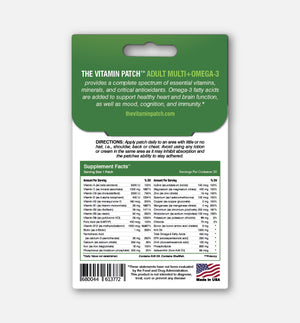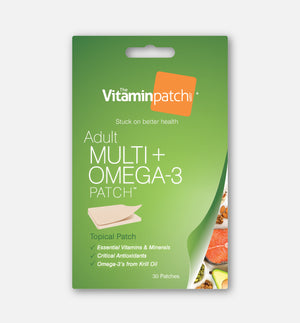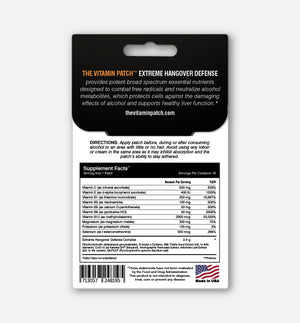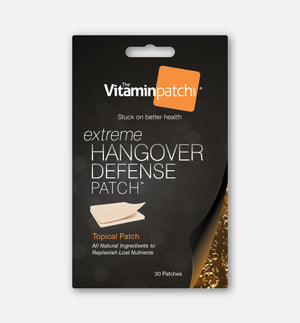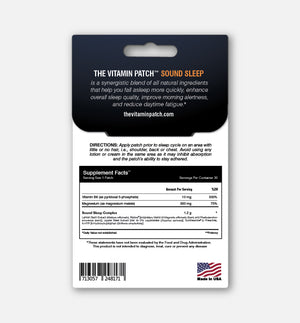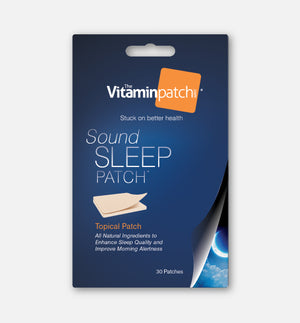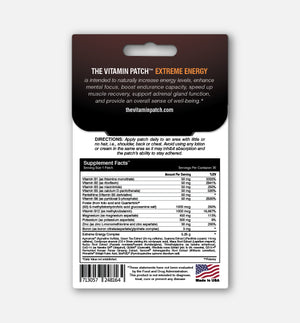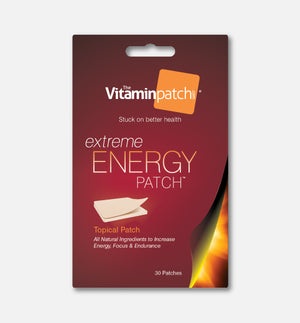Have you ever wondered about the difference between vitamins and minerals or how these essential nutrients support your body's countless functions? At The Vitamin Patch, we believe in nurturing your well-being through a holistic approach, blending innovation with reliable information to empower you to make informed choices about your health.
In this blog, we’ll delve into the world of vitamins and minerals, answering common questions about their impact on your health and best practices for supplementation.
What are vitamins, minerals, and supplements?
Water-soluble vitamins
There are nine water-soluble vitamins, including Vitamin C and Vitamin B complex (thiamine, riboflavin, niacin, pantothenic acid, pyridoxine, biotin, folate, and cobalamin). These vitamins dissolve in water, but the body cannot store them, so they need a steady and regular intake to maintain their levels.
Fat-soluble vitamins
Fat-soluble vitamins (including Vitamins A, D, E and K) are absorbed with the fats in your diet and stored in the body’s fatty tissues. This means there is a reserve of vitamins that are available as required.
Minerals
Minerals are essential nutrients that have a range of health benefits and are required by the body for various functions, including bone health (calcium), muscle function (magnesium), oxygen transport (iron), nerve function and fluid balance (potassium), and immune function and wound healing (zinc). These minerals are naturally present in many foods, such as dairy products, nuts, seeds, leafy greens, and lean meats.
Supplements
Supplements, in contrast, are concentrated forms of vitamins, minerals, or other nutrients that can complement your diet when natural sources are lacking or for any specific health goals that require targeted support. They offer convenience and precision in delivering nutrients but should be taken with careful consideration and according to individual needs and recommendations.

What is the difference between vitamins and minerals?
Vitamins are organic compounds needed in small amounts to support various bodily functions whereas minerals are inorganic elements critical for processes like bone health, nerve function, and enzyme activity. Both are vital, but their chemical structures and roles in the body differ.
Why do we need vitamins and minerals?
Vitamins and minerals are the body's "micronutrients" that act as catalysts in thousands of chemical reactions and help maintain the body's structure and function.
They play critical roles in meeting key physiological needs for energy production, immunity, cognitive function, anti-inflammatory responses, stress relief and more. For instance, B vitamins are essential for converting food into energy, supporting nerve function, and aiding in red blood cell production. Vitamin C is renowned for its immune-boosting properties and its role in collagen synthesis, contributing to skin health and wound healing. Omega-3 fatty acids, while not vitamins or minerals themselves, are often included in supplements for their anti-inflammatory benefits, which can support heart health and joint function.
Minerals like zinc are crucial for immune function and wound healing, while potassium helps regulate blood pressure and muscle function. Magnesium plays a role in hundreds of enzymatic reactions, including those involved in energy production and nerve function. Additionally, certain vitamins and minerals, like vitamin D and omega-3 fatty acids, have been linked to cognitive benefits, supporting brain health and mood regulation.
Am I getting enough vitamins and minerals?
A balanced diet should provide most of your essential nutrients. However, factors like diet, lifestyle, and health conditions can affect your needs. Consulting a healthcare provider can help assess if you're meeting your nutritional needs.

FAQs
Which supplements should not be taken together?
Some vitamins compete for absorption when taken together in high doses, so it's wise to follow recommended doses and spacing for optimal nutrient absorption.
Calcium with Iron, Magnesium, or Zinc
Calcium can inhibit how your body absorbs many other minerals, including iron, magnesium, and zinc. If you are taking a combination of these vitamins, it is recommended to wait at least two hours between taking each supplement. You can also consult your healthcare professional to discuss the best timing for maximum absorption of your nutrients.
Copper and Zinc
High doses of zinc can interfere with copper absorption, which is vital for various enzymatic functions in the body. These minerals are absorbed in the same way, and Zinc is usually the preferred nutrient, which can lead to a copper deficiency, so balance is key when supplementing these minerals.
Vitamin C and B12
Large doses of vitamin C may interfere with the amount of Vitamin B12 that is absorbed and metabolized by the body. If taking supplements of these vitamins together, it is advisable to take Vitamin C at least two hours after Vitamin B12 to avoid a B12 deficiency.
Vitamin E and Vitamin K
High doses of vitamin E can interfere with vitamin K's role in blood clotting. It's advisable to consult with a healthcare provider before taking supplements containing these vitamins together.
Can you take too many supplements?
Yes, excessive intake of certain vitamins or minerals can sometimes be harmful.If you have too much of a water-soluble vitamin, your body will flush the excess out, so it will rarely be harmful. However, an excess of fat-soluble vitamins can build up in your body potentially causing side effects. Always follow recommended doses and avoid mega-doses unless advised by a healthcare professional. Remember, too much of a good thing isn't always better!
How do I know which vitamins I need?
A personalized approach is best, so you should consider factors like your age, diet, health conditions, and lifestyle. Blood tests and consultations with healthcare providers can identify specific deficiencies and guide your nutritional needs.
Our Vitamin Quiz considers all of you individual needs and health goals to recommend the best patches for you to make sure you get the nutrients that your body craves!
How do I know if my vitamins are working?
While immediate effects may not be noticeable, sustained energy levels, improved immunity, and overall well-being are indicators. Regular check-ups and blood tests can also track progress.
When should I take my supplements?
Timing can influence absorption and effectiveness. Some vitamins are best taken with food, while others are more effective on an empty stomach. Follow recommended guidelines or consult a healthcare professional for personalized advice.


